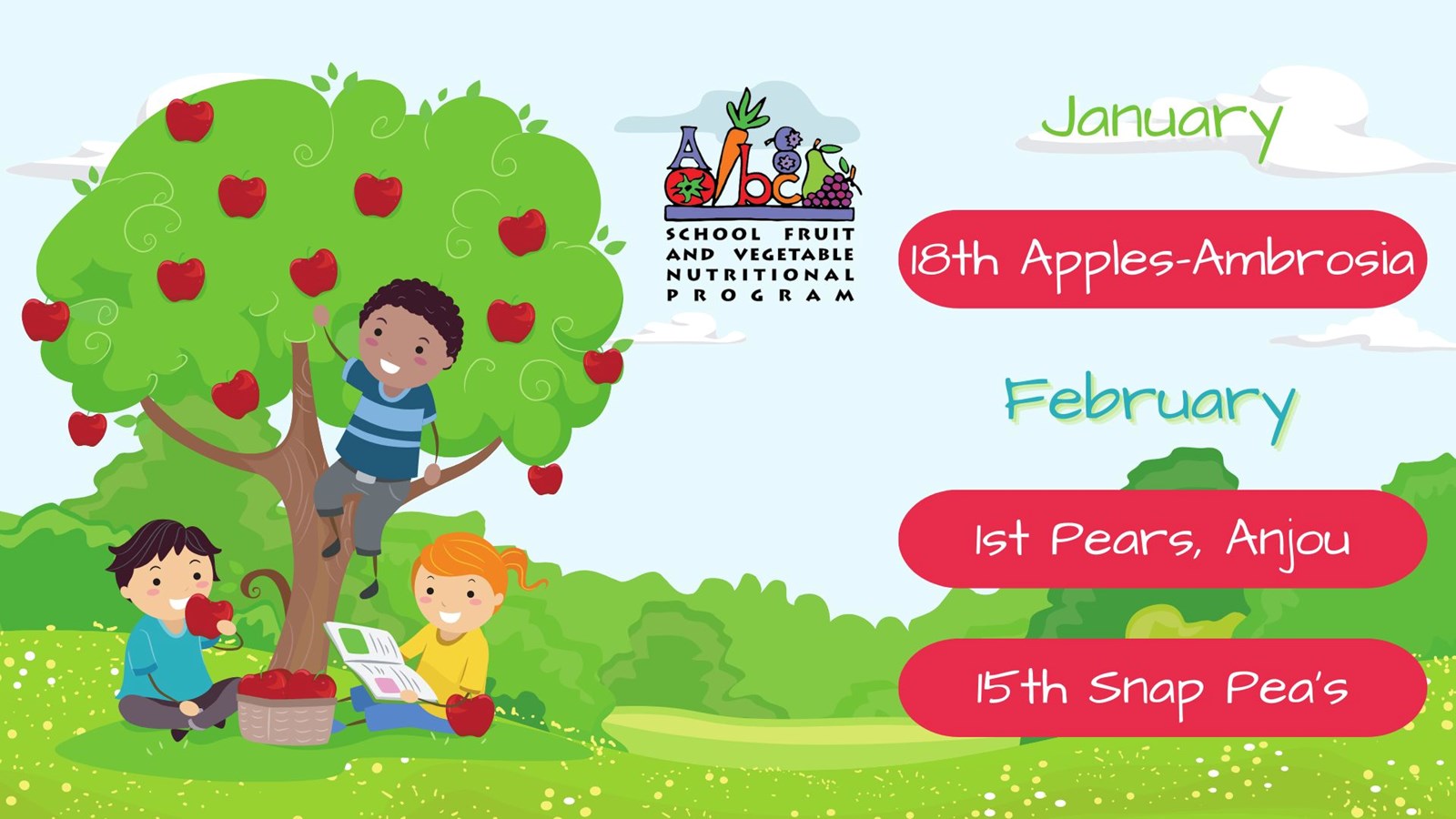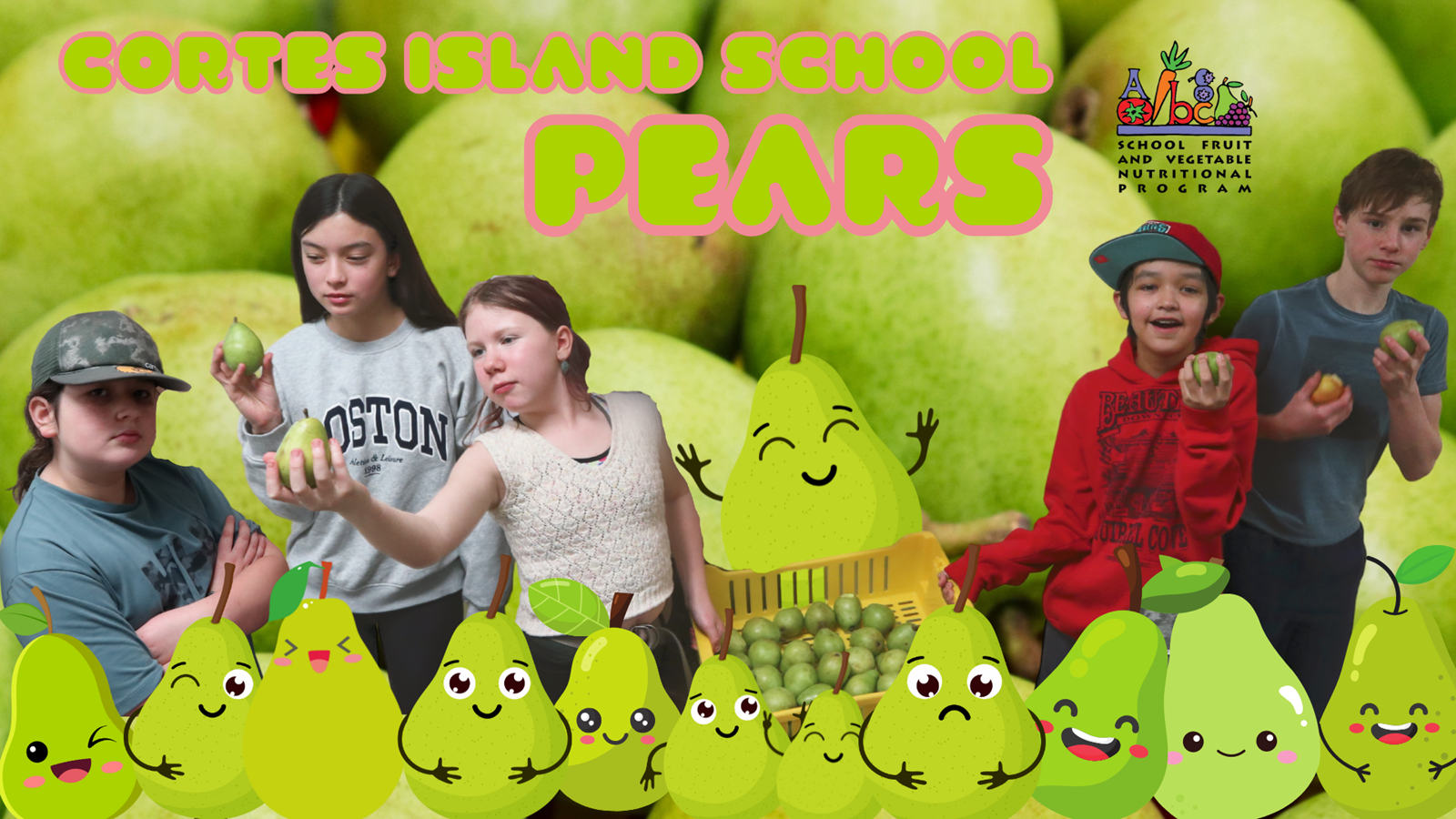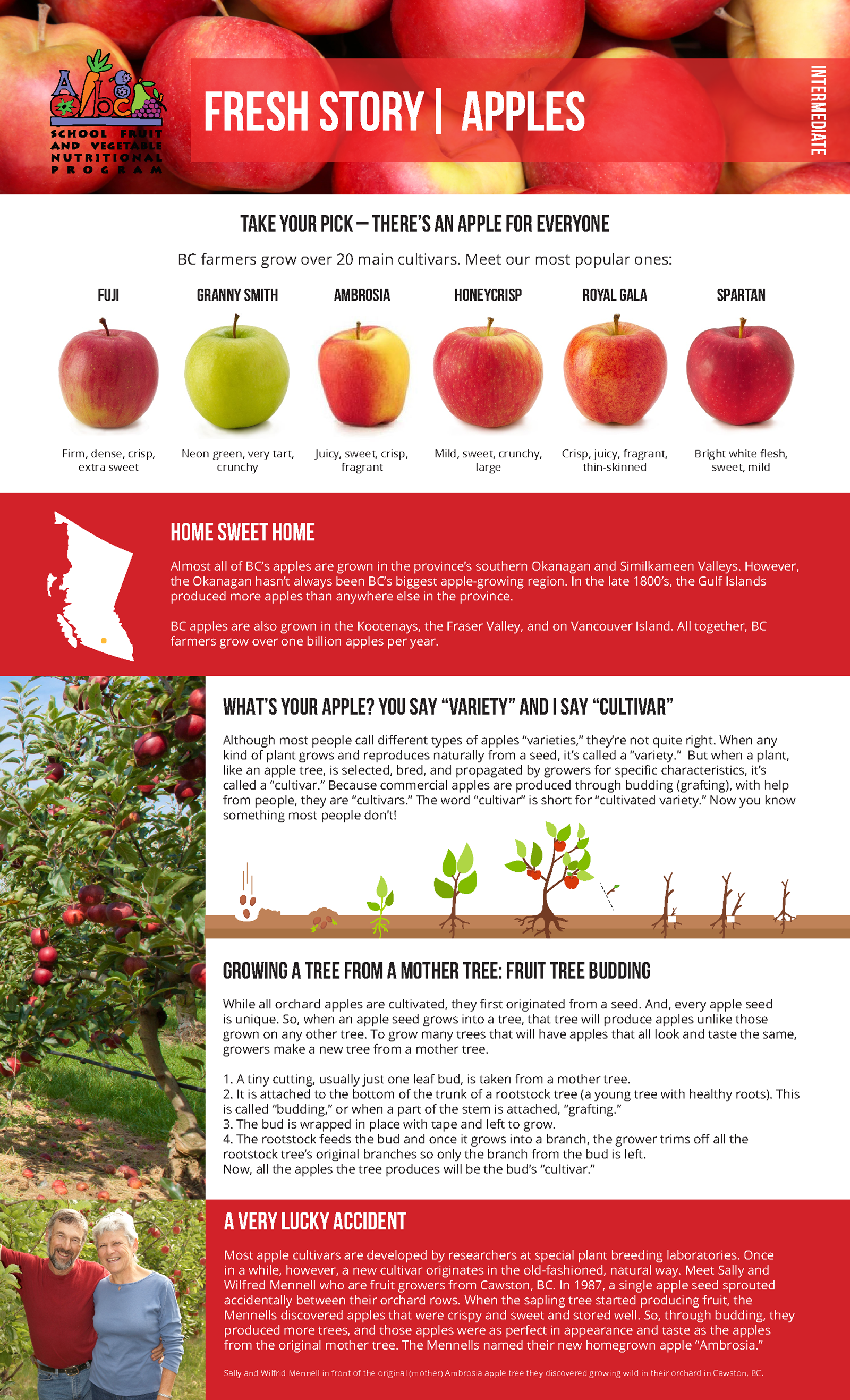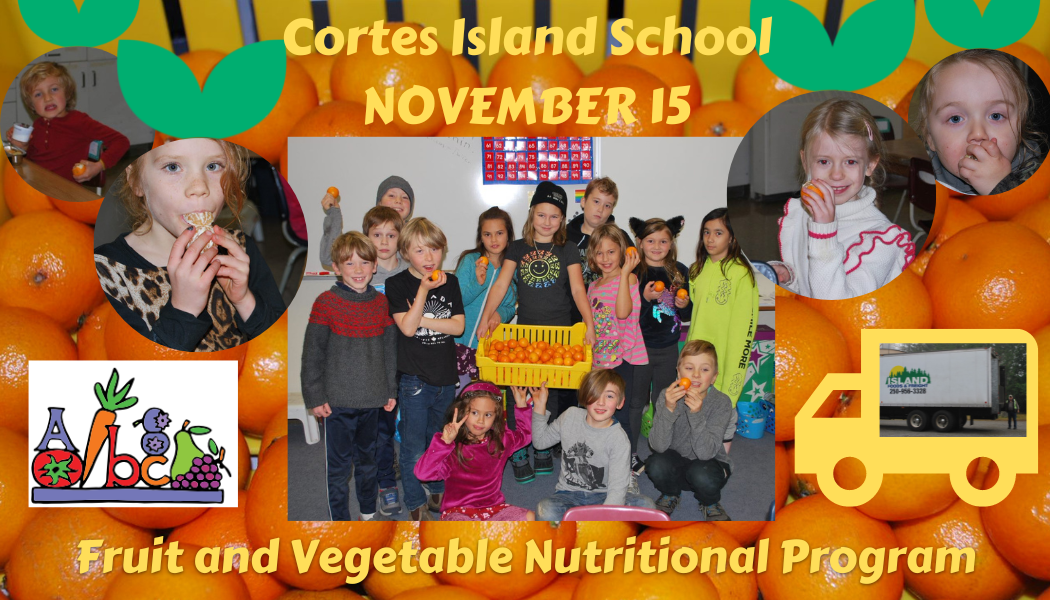BC School Fruit and Vegetable Nutritional Program Information and Photos

BC Agriculture in the Classroom Foundation
The BC School Fruit and Vegetable Nutritional Program is brought to your school by the BC Agriculture in the Classroom Foundation – a non-profit organization, dedicated to “working to bring BC agriculture and food education to students throughout the province.” The Foundation works with local farmers and distributors to bring fresh BC products to students in public and First Nations schools throughout BC. The BC School Fruit and Vegetable Program is supported by the Province of British Columbia. +Milk is provided by a partnership between the BC Dairy Association and the provincial government.
The BC Agriculture in the Classroom Foundation is working with Save-On-Foods and independent grocers to deliver fruits and vegetables to school communities. All fruits and vegetables will be BC grown where possible.
Fruit and Vegetable

Every other week a delivery of fresh fruit or vegetable snack to Grade K to 12 students. They make their own decision on whether they try the fruit or vegetable offered. It is not meant to replace the foods students normally eat at school.
Milk

Every Grade K to 5 students in the program receives a small cup of milk with their fruit or vegetable snack. Fortified soy beverage has been requested as an alternative for those who have identified having Lactose sensitivities
Every Month We Receive Milk
With the return of consent forms, fortified soy beverages have been requested for our next delivery for students that have identified as having lactose sensitivities.
Message from B.C. Agriculture in the Classroom Foundation.
Soy: Schools enrolled in the +Milk and requiring the Soy Beverage – We deeply regret to inform you that we are unable to get Soy beverage until mid-March now, which is during Spring Break for most – so will only be included for the April, May and June delivery weeks. We do understand the consequences of this, and deeply apologize for this inconvenience.
February- Pears

January: Apples- Ambrosia

December: No Deliveries
November: Mandarin Oranges

Mandarin oranges are citrus fruits. They have orange skins like navel oranges, but the skin is loose and easy to peel. Mandarin oranges do not grow in BC, but for many years BC residents have looked forward to this seasonal winter treat imported from Asia.
Fun Facts:
1. Mandarin oranges have been cultivated in China and Japan for thousands of years.
2. Mandarin oranges were sent by ship to Canada from Japan by relatives as gifts from home to celebrate the new year.
3. They were transported from the west across Canada on freight trains called orange trains.
4. During Chinese New Year, mandarin oranges are used as decoration and exchanged by family and friends.
5. The essential oil from a mandarin orange is used for relaxation.
6. In Chinese medicine, the peel of the mandarin orange is used to improve digestion.
7. We don’t typically eat the peel because it’s bitter, but it is full of vitamin C and fibre, and it can be used fresh or dried in cooking to add flavour to dishes.
8. Mandarin oranges also contain vitamin A and several nutrients and minerals, such as potassium and manganese.
9. Mandarin oranges are often individually wrapped in tissue paper. The paper retains oxygen and prevents neighboring oranges from spoiling.
10. Until recently, mandarin oranges were only available in the winter. Today, they are imported from many countries and we can enjoy them year-round





.png)